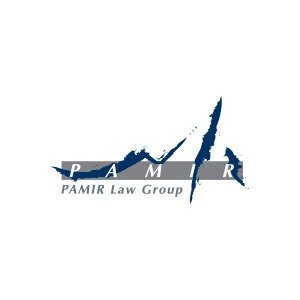Best Antitrust Litigation Lawyers in Taiwan
Share your needs with us, get contacted by law firms.
Free. Takes 2 min.
Or refine your search by selecting a city:
List of the best lawyers in Taiwan
About Antitrust Litigation Law in Taiwan
Antitrust litigation in Taiwan plays a crucial role in promoting fair competition and protecting consumer interests. The main aim of Taiwan's antitrust laws is to prevent monopolies, reduce unfair trade practices, and create a level playing field for all market participants. The Fair Trade Act is the primary legislation that governs antitrust matters in Taiwan, and it is enforced by the Fair Trade Commission. Antitrust litigation may be administrative, civil, or criminal depending on the nature and severity of the alleged violation. Businesses and individuals can become involved in antitrust proceedings as either complainants or defendants.
Why You May Need a Lawyer
Many situations can require the assistance of an experienced antitrust litigation lawyer in Taiwan. These include:
- Facing an investigation by the Fair Trade Commission for alleged monopolistic practices
- Challenging anti-competitive behaviors by competitors
- Negotiating and reviewing merger or acquisition deals that could raise anti-competition concerns
- Responding to cease-and-desist orders or facing administrative fines
- Pursuing or defending against civil claims for damages resulting from anti-competitive conduct
- Advising on compliance with antitrust regulations in business operations and commercial contracts
- Navigating cross-border issues when international companies operate in Taiwan
Local Laws Overview
The foundation of antitrust regulation in Taiwan is the Fair Trade Act. This law covers a broad range of anti-competitive behaviors, including:
- Monopolistic practices - Actions that attempt to exclude competitors or control market prices
- Concerted actions - Agreements or coordinated activities between businesses that restrict competition, such as price-fixing or market allocation
- Merger controls - Review and approval processes for mergers or acquisitions that could substantially lessen competition
- Unfair trade practices - Such as false advertising, abuse of market position, or resale price maintenance
Frequently Asked Questions
What government agency enforces antitrust laws in Taiwan?
The Fair Trade Commission (FTC) is responsible for enforcing antitrust laws in Taiwan. It conducts investigations, issues penalties, and provides guidance on compliance with the Fair Trade Act.
What constitutes a monopoly under Taiwan law?
A monopoly occurs when a single business controls a significant portion of the market and has the power to set prices or exclude competitors. The FTC evaluates market share and the ability to influence the market when determining if a monopoly exists.
What are concerted actions?
Concerted actions are coordinated efforts by two or more businesses to restrict competition, such as fixing prices, dividing markets, or restricting production. Such actions are generally prohibited under the Fair Trade Act.
Are mergers and acquisitions subject to antitrust review?
Yes, certain mergers and acquisitions that meet specific revenue or market share thresholds must be reported to the FTC for review and approval to ensure they do not reduce competition in the market.
Can individuals or businesses file civil lawsuits for antitrust violations?
Yes, parties harmed by anti-competitive conduct can file civil lawsuits for damages resulting from antitrust violations in addition to administrative actions taken by the FTC.
What penalties can be imposed for violating antitrust laws?
Penalties may include administrative fines, orders to cease certain conduct, and, in severe cases, criminal charges and imprisonment. Harmed parties may also seek compensation through civil proceedings.
How long do investigations by the Fair Trade Commission take?
The length of investigations varies depending on the complexity of the case. Some inquiries may be resolved within months, while others can take longer if extensive fact-finding is necessary.
Are cross-border activities covered by Taiwan’s antitrust laws?
Yes, conduct outside Taiwan that affects the domestic market may be subject to the Fair Trade Act. Multinational businesses should be cautious about practices that could impact competition in Taiwan.
Is it possible to negotiate a settlement with the FTC?
In some cases, the FTC may allow for administrative settlements or commitments to stop anti-competitive conduct instead of imposing immediate penalties, depending on the nature of the violation.
What should I do if my company receives a notice of investigation?
You should promptly consult a lawyer experienced in antitrust litigation to understand your rights and obligations and to prepare an appropriate response or defense.
Additional Resources
If you require more information or support, the following resources may be helpful:
- Fair Trade Commission (FTC) - The primary regulator for antitrust matters in Taiwan
- Judicial Yuan - For information on court procedures related to civil antitrust litigation
- Legal Aid Foundation - Offers legal assistance and referrals in eligible situations
- Taiwan Bar Association - Directory of qualified lawyers, including those specializing in antitrust law
- Academic research institutes on competition law - For in-depth studies and publications
Next Steps
If you believe you are involved in or affected by an antitrust issue in Taiwan, consider the following steps:
- Document all relevant facts and communications related to the suspected antitrust matter
- Consult with a qualified antitrust litigation lawyer to discuss your situation and legal options
- Respond promptly to any official communications from the Fair Trade Commission
- Stay informed by reviewing resources published by the FTC or other reputable organizations
- Act within relevant time limits, as antitrust matters often involve legal deadlines for filing responses or lawsuits
Lawzana helps you find the best lawyers and law firms in Taiwan through a curated and pre-screened list of qualified legal professionals. Our platform offers rankings and detailed profiles of attorneys and law firms, allowing you to compare based on practice areas, including Antitrust Litigation, experience, and client feedback.
Each profile includes a description of the firm's areas of practice, client reviews, team members and partners, year of establishment, spoken languages, office locations, contact information, social media presence, and any published articles or resources. Most firms on our platform speak English and are experienced in both local and international legal matters.
Get a quote from top-rated law firms in Taiwan — quickly, securely, and without unnecessary hassle.
Disclaimer:
The information provided on this page is for general informational purposes only and does not constitute legal advice. While we strive to ensure the accuracy and relevance of the content, legal information may change over time, and interpretations of the law can vary. You should always consult with a qualified legal professional for advice specific to your situation.
We disclaim all liability for actions taken or not taken based on the content of this page. If you believe any information is incorrect or outdated, please contact us, and we will review and update it where appropriate.
Browse antitrust litigation law firms by city in Taiwan
Refine your search by selecting a city.
















